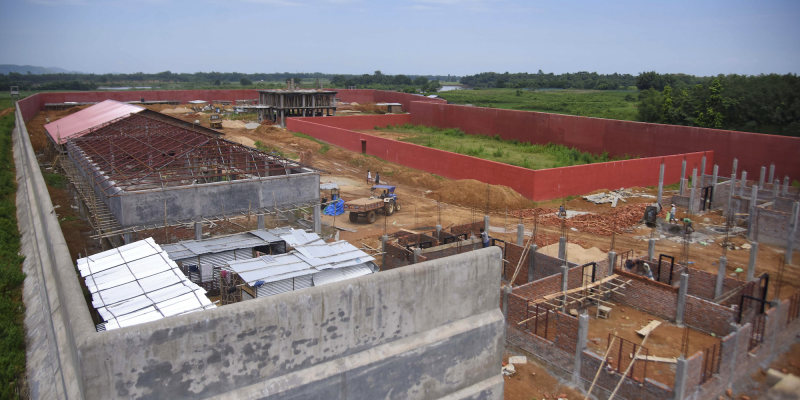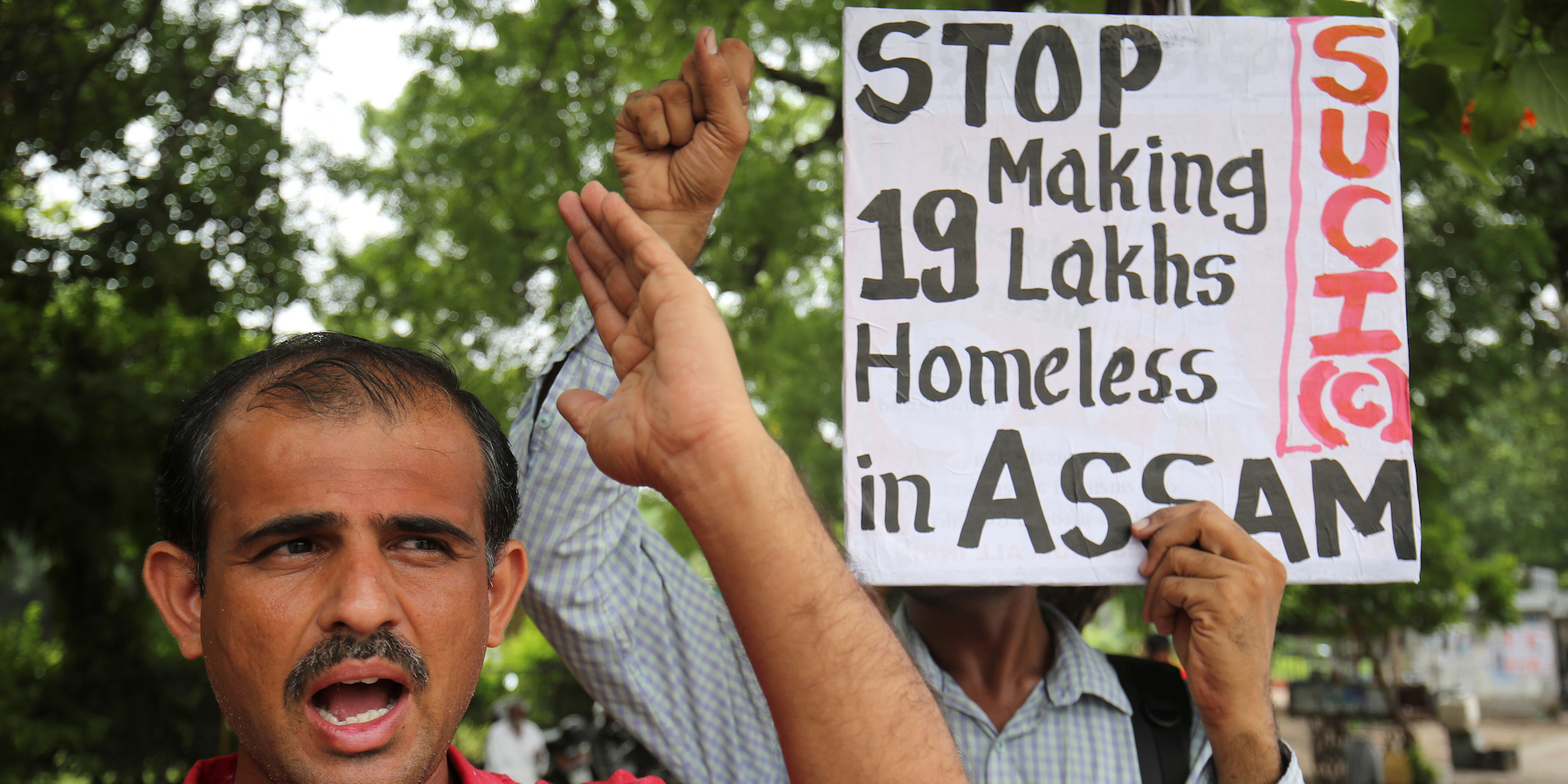- India has begun constructing a large scale detention center in the northeastern state of Assam.
- According to Reuters, the expansive project in the Goalpara district includes a school, hospital, and recreation area and is meant to hold at least 3,000 detainees.
- News of the construction of the detention facilities follows a crackdown on residents in Assam that the government now considers to be stateless.
- 1.9 million people were excluded from the state’s register, and the country has not yet outlined what fate lies ahead for them.
- Visit Business Insider’s homepage for more stories.
India has begun construction on a mass detention center for illegal immigrants in the Goalpara district of the northeastern state of Assam, one month after the country stripped almost two million people of citizenship.
According to Reuters, which interviewed workers and contractors at the site, an area the size of seven soccer fields has been cleared to make space for the expansive project said to include a school, hospital, and recreation area. Layout plans reviewed by Reuters also show quarters for guards, a high boundary wall, and watchtower, it said.
The detention center visited by Reuters is the first of at least 10 others planned in Assam. It is meant to hold at least 3,000 detainees.
Government guidelines released this year indicate that detention centers should have a boundary wall at least 10-feet high lined with barbed wire, Reuters said, citing local media.
The Goalpara camp has a red boundary wall and two large watchtowers. Men and women will have separate living areas, workers and contractors told Reuters.

One contractor told Reuters that the rooms in the center would be around 350 square-feet each, with each unit housing 24 rooms.
India made 1.9 million people effectively stateless last month
News of the detention facilities in Assam follows a crackdown on 1.9 million residents that the government now considers to be stateless.
Last month, the government put out a final list of all the residents in Assam considered to be Indian citizens called the National Register of Citizens (NRC). Around 33 million people submitted documents for consideration by the state, though the final list only contains 31.1 million names.
According to India Today, the NRC is used to verify citizenship in India and is used by the government to identify anyone who immigrated from neighboring Bangladesh after March 25, 1971.
Residents need to prove their citizenship by showing that either they or their ancestors were born in Assam before the cutoff date - which corresponds to the beginning of the Bangladesh War of Independence that saw hundreds of thousands of people flee the country as it split from Pakistan.

Those excluded from the NRC have 120 days to prove their citizenship. The Assam government has previously said those not included in the register will not be detained until they are declared foreigners by a special tribunal, according to India Today.
According to Reuters, state officials have not outlined what fate lies ahead for those deemed foreigners, and neighboring Bangladesh has not agreed to accept the potential influx of stateless people.
Critics say the move is bringing the region to the brink of a crisis
The move has faced backlash from critics who accuse Prime Minister Narendra Modi and his allies of stoking racial tensions in one of India's poorest regions, which is also home to a large Muslim population.
Amit Shah, the country's home affairs minister, said on Sunday that the government "will not allow a single illegal immigrant to stay." He also previously encouraged the country to take action against "infiltrators who were eating the country like termites," according to the Guardian.
"Our intention is to expel illegal immigrants from the entire country and not just Assam," he said.
Amnesty International has criticized the NRC and says it leaves the futures of millions of people in the region uncertain.
"Many Indians, especially those belonging to poor and marginalized communities, do not have certified copies of identity documents or are unable to produce it on time to prove their citizenship," said Aakar Patel, Head of Amnesty International India.
"Assam is on the brink of a crisis which would not only lead to a loss of nationality and liberty of a large group of people but also erosion of their basic rights - severely affecting the lives of generations to come."
Earlier this month, India also revoked part of its constitution which gave the disputed region of Jammu and Kashmir a special status and quasi-independence. The state, which is home to a significant Muslim population, was cut off from communication and is now directly under the control of India's federal government in New Delhi.

